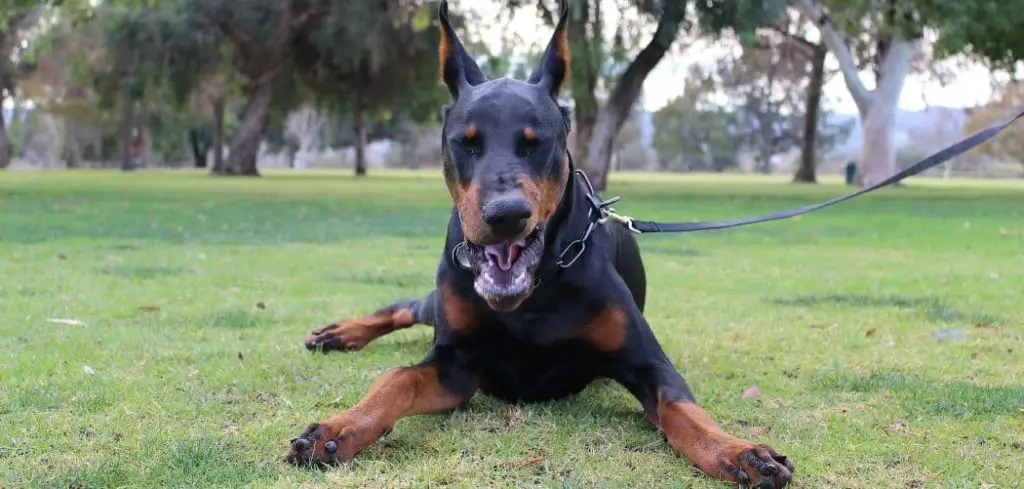When your dog starts hacking up mucus, it can sound alarming — almost like they’re choking or trying to clear their throat.
This symptom can range from mild irritation to a sign of something more serious affecting your dog’s respiratory or digestive system.
We outline the common causes of a dog hacking up mucus, what you can do, and when to seek veterinary help.
Dog Hacking Up Mucus — Why It Happens
Hacking up mucus in dogs often points to irritation or inflammation in the airways, throat, or lungs. The hacking motion is your dog’s attempt to expel the buildup — similar to a human clearing their throat or coughing. It may be triggered by kennel cough, allergies, respiratory infections, heart disease, a collapsed trachea, or something stuck in the throat.
These issues can range from treatable to potentially serious, so paying attention to other symptoms is key.

Dog Hacking Up Mucus: Common Causes
Kennel Cough (Infectious Tracheobronchitis)
Kennel cough is one of the most common reasons dogs hack up mucus. This contagious respiratory infection irritates the trachea and bronchi, causing a distinctive dry, hacking cough that can sometimes produce foamy or slimy mucus.
Dogs can pick it up easily in kennels, dog parks, or grooming facilities. In mild cases, symptoms improve on their own, but severe cases can lead to pneumonia. Puppies, seniors, and dogs with weakened immune systems are most vulnerable.
Read more: Dog Constant Hacking Cough (Causes and what to do)
Allergies and Postnasal Drip
Environmental or seasonal allergies can trigger mucus buildup in your dog’s airways. When pollen, dust, mold, or smoke irritate the respiratory tract, your dog may produce excess mucus.
This can trickle down the throat and cause that persistent hacking sound as they try to clear it.
Unlike kennel cough, allergy-related hacking tends to be more chronic and may be accompanied by sneezing, watery eyes, or scratching.
Respiratory Infections (Viral or Bacterial)
Respiratory infections — such as canine influenza or pneumonia — can cause inflammation and mucus production in the lungs and airways. Dogs with respiratory infections often hack up thick mucus, sometimes with a wet, phlegmy sound.
Other signs may include fever, lethargy, nasal discharge, and labored breathing. These infections require veterinary diagnosis and often medication to clear up.
Collapsed Trachea
Small breeds like Yorkies, Chihuahuas, and Pomeranians are especially prone to collapsed trachea. This condition occurs when the cartilage rings of the trachea weaken, causing a chronic, harsh hacking cough.
Mucus can build up in the airway, making the cough sound wet or honking. Dogs may hack more when excited, pulling on a collar, or after activity. It’s a lifelong condition that can be managed but not cured.
Heart Disease
Heart disease, especially congestive heart failure, can cause fluid buildup in the lungs. This leads to coughing and hacking, often worse at night or after exercise. Some dogs may bring up foamy mucus as their body tries to clear the excess fluid.
You might also notice lethargy, difficulty breathing, or a swollen belly. Heart disease is serious and needs prompt veterinary care.
Throat Irritation or Foreign Object
Sometimes the cause is more mechanical — a piece of grass, stick, or other object stuck in the throat can make your dog hack persistently as they try to clear it.
Even without a foreign object, smoke, perfume, or dust can irritate the throat and trigger hacking and mucus.
If your dog seems panicked, is pawing at their mouth, or struggling to breathe, this is an emergency.
Read more: Dog Hacking Cough at Night (Here’s what it could mean)
What to Do If Your Dog Is Hacking Up Mucus
If your dog is hacking up mucus, the first step is to observe their behavior closely.
Note whether the hacking is occasional or constant, whether the mucus is clear, foamy, or thick, and if there are other symptoms like wheezing, sneezing, or lethargy. A mild, occasional hack may not be serious and could be related to irritation or mild allergies.
You can help by keeping your dog’s environment clean, running an air purifier, and limiting exposure to smoke, strong scents, or dust. Ensure they stay well-hydrated, as fluids help thin mucus.
For mild kennel cough or allergies, your vet may recommend rest, humidity, or over-the-counter antihistamines under guidance. Never give human medication without veterinary approval.
If the hacking persists beyond a few days, worsens, or comes with difficulty breathing, weakness, or loss of appetite, schedule a vet visit right away. Your vet may need to perform X-rays or other tests to find the underlying cause.
When to Call or Visit Your Vet
Persistent or severe hacking should never be ignored.
Call your vet immediately if your dog is hacking up thick or discolored mucus, breathing rapidly, seems weak, or is showing signs of distress.
Emergency care is needed if your dog’s gums turn pale or blue, if they collapse, or if hacking turns into choking.
Even if symptoms seem mild, hacking that doesn’t improve after a few days can indicate an underlying respiratory or heart condition. Early diagnosis and treatment can prevent complications and help your dog recover faster.
Read more: Old Dog Hacking Cough (Why it happens)
Key Takeaway
Dog hacking up mucus isn’t just a noisy annoyance — it can signal irritation, infection, or even heart or airway problems.
While mild cases may resolve with rest and home care, persistent or severe hacking should always be evaluated by a vet.
Pay attention to the frequency, severity, and accompanying symptoms, and act quickly if your dog shows signs of breathing difficulty or distress.
Prompt care can make a big difference in your dog’s comfort, health, and recovery.
